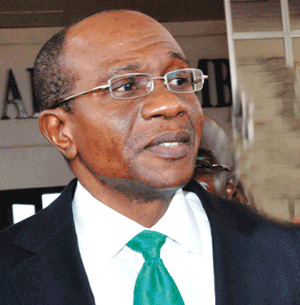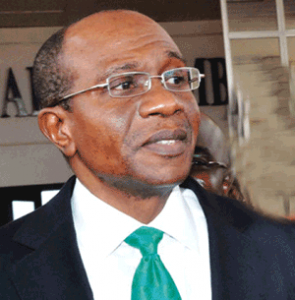Jolted by low access to its N220bn MSMEs funds by operators of the sector, the Central Bank of Nigeria (CBN) has relaxed most of the criteria inorder to stimulate disbursement of the funds to target operators in the micro, small, and medium scale enterprises (MSMEs) sector of the economy.
CBN’s target is that by the end of this year, half of the funds would have been disbursed to target operators, and the impact of the funds will have been felt on the economy.
The apex bank is particularly worried that since the fund was launched on August 19, 2014 only N40.3 billion has been disbursed to operators who have been discouraged by stringent conditions attached to accessing the funds.
Consequently, the CBN put together a workshop on Wednesday, March 18, 2015 to create awareness on how to access the funds, enlighten operators, the commercial banks on the benefit of collateral registry and the amended criteria for accessing the funds.
Addressing newsmen at the workshop held in Lagos, CBN Head of Relationship Management, MSME Development Finance Department, Tobin Jonathan, disclosed that only N40.3bn has been disbursed to state governments, and participating financial institutions (PFIs).
He said: “As we speak, N40.3bn has been disbursed to state governments, to commercial banks, to MFBs, to Financial Cooperatives. We have disbursed to 19 state governments…… some of them have taken first tranche of N1bn; N2bn mark, and we have disbursed to many MFBs.
“MFBS have received N2bn so far; and commercial banks N814mn, and Micro Finance Institutions N100m, and we have applications we are also processing. It is an ongoing process. We believe that very soon, the effect of this fund will begin to impact on the economy,” Jonathan stated.
He disclosed that complaints from the MSME operators suggested that the criteria were too strict and difficult to meet, a reason why the CBN governor, Godwin Emefiele, has decided to relax the criteria across board to make the funds more accessible.
According to him, the PFIs said that the collateral required to access the funds was an issue. So, the governor of CBN in his magnanimity reduced it significantly, stressing that with that reduction there have been some improvement in the application level.
He added that the CBN has also addressed all other complaints raised by PFIs including the spread of profit to cover their cost of operations. “So they can collect the forms at 2 per cent and give it out at 5 per cent. So they have 7 per cent spread which is good enough. That has encouraged so many of them to begin to apply,” said Jonathan.
Also speaking, the Project Manager for Financial Infrastructure Project to the CBN, International Finance Corporation (IFC) and a resource person at the workshop, Ubong Awah, said “We are collaborating with the CBN to establish the National Collateral Registry which will be launched by June”.
He said it is important as part of effort to stimulate financing to the MSME sector in Nigeria stressing that collateral registry will provide part of the infrastructure for pushing the initiative ahead.
“So we are here to create awareness on this, and also enlighten operators, the banks together with the CBN on the benefit of collateral registry. MSME sector is important. And financing in that sector is something that also needs to be attended to.
“It needs some level of capacity. Some level of capability we are bringing to the table because we are involved in many projects on this. We are collaborating with government to do this. So we are bringing expertise and experiences we have over the years and all over the world to make it available to credit offices with the understanding that they will be knowledgeable in this; better equipped and enabled to better drive the process,” said Awah.
It would be recalled that the apex bank had last year set aside N220billion MSMEs funds meant for disbursement for qualified entrepreneurs.
However, almost one year since the fund was launched with funfair, entrepreneurs could not access the funds in which 60 per cent is meant for women entrepreneurs while the balance of 40 per cent is meant for opposite sex.














